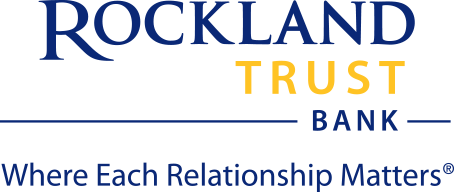Twenty-somethings may not realize it, but every time they enter a new phase of their life as young adults — perhaps starting college, a career or a family — they're also venturing into a new world of money management. Here are ways to be prepared.Save money that could make your future dreams a reality.It's important to put money aside for purchases you expect to make in the next few months or years. But even at this stage of your adult life, it's smart to save for long-term goals, perhaps
buying a home, owning a business or saving for
retirement (even though that may be 40 or 50 years away).
To help you stay focused on saving money and controlling your spending, think about creating a formal or
informal budget. "The important thing is to understand how much you earn each month, how much you pay for essentials like rent or transportation, and how much is left over for everything else," said Janet Kincaid, Chief of the FDIC's Consumer Response Center. It's how you spend what is in the "everything else" category that is critical to successful money management, Kincaid added.
Also, to make saving easy and painless, consider arranging with your bank or employer to automatically transfer a certain amount each month to a
savings or investment account.
Build a good credit record. As you become responsible for paying your own debts — for credit card purchases, rent, car loans or student loans, and other obligations — you are building a credit record. Companies called credit bureaus are authorized by law to collect information on each person's history of paying debts, which is then used to prepare "credit reports" and summary "credit scores." In general, the better your credit history and credit score, the better your chances are of getting a loan, including a credit card, with an attractive interest rate. Credit reports and scores also can be considered when you apply for a job, an insurance policy or an apartment.
One of the best ways to build and maintain a good credit record is to pay your credit card bill and other debts on time — to show you are a reliable money manager.
What else can you do to improve your credit score? "Try to charge on your credit card only what you can afford to pay off immediately or within a reasonable time frame," said Robert Mooney, FDIC Deputy Director for Consumer Protection and Community Affairs. "Whenever possible, pay your credit card bill in full each month, but if you can't do that, pay as much as you can over the minimum amount due."
If you need to get a car, consider the best way to pay for it. For many young adults, their first big purchase and ongoing expense is their vehicle. Often, the first question is whether to buy (which may involve taking out a loan) or lease (which is similar to renting a car but for a few years).
"There are different pros and cons to buying or leasing," said Kincaid. "For example, monthly lease payments are usually lower than monthly loan payments, but at the end of the lease you don't own the car you've been paying for and you may owe a sizeable sum of money. If you buy, you do have a vehicle you can sell or trade in."
If you're renting a house or apartment, consider if it's time to buy. Once you start earning a good, steady income, you'll most likely face the decision about when is the right time to own your first home. Real estate can be an excellent investment. But home ownership is a big financial commitment, and home values sometimes can go down. "There's a lot to consider before making that big leap into home ownership, and what works for one person isn't always the best fit for someone else," said Lee Bowman, FDIC National Coordinator for Community Affairs.
First look at the costs of renting versus paying a mortgage. "When buying a home, the most important thing to look at is what you can reasonably afford," added Kincaid. "Remember you'll be paying real estate taxes and insurance, mortgage interest payments, and the costs of maintenance and improvements. But also remember the upsides of buying a home, such as tax benefits, the potential for your home to appreciate in value, and the satisfaction of having a place to call your own."
Other factors to consider include how long you plan to stay in the house, how much money you have for the down payment, and how good your credit record is. "If your credit record is less than stellar, you may only be offered a mortgage at a high interest rate," Kincaid said.
To learn more about
renting vs. buying a home and paying a mortgage, go to
www.mymoney.gov, a federal Web site for information from a variety of sources, and
www.hud.gov, the U.S. Department of Housing and Urban Development.




